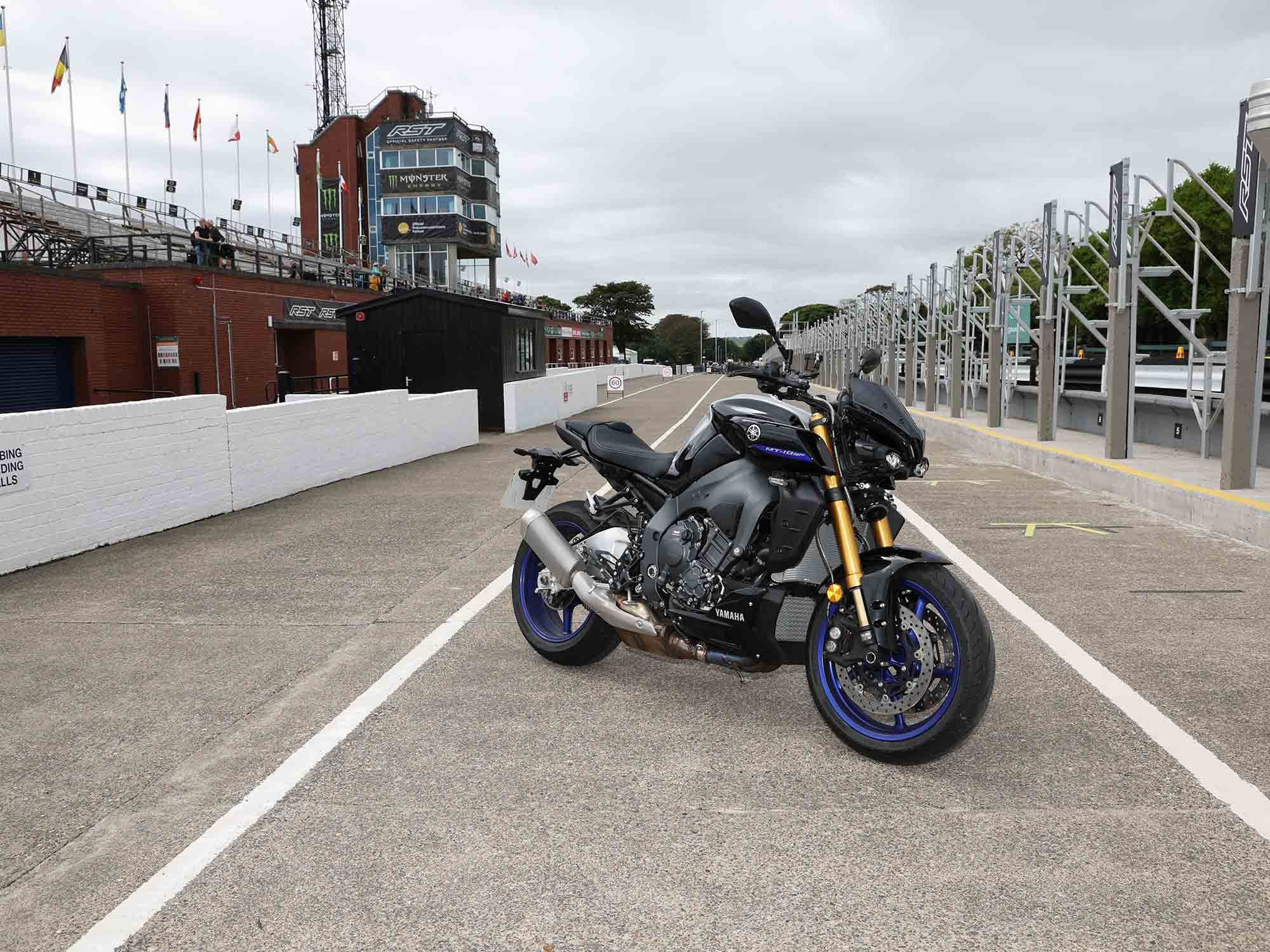
In a bid to keep its popular MT-10 naked price-competitive, Yamaha has, since the bike’s 2016 introduction, traditionally shied away from equipping it with high-end suspension and premium chassis parts. Instead, a more expensively suspended SP version sits alongside the “base” MT-10, and is introduced shortly after each MT update.
Editor’s note: We test rode the standard MT-10 during the Is Yamaha’s 2022 MT-10 the Best Naked Bike in its Class? and 2022 Yamaha MT-10 Review articles and videos.
Earlier this year the base MT received an overhaul, with the installation of a long-overdue six-axis IMU the headline update, which means all the bike’s rider aids—slide control, traction control, corning ABS, front wheel lift control, and changeable engine-brake strategies—could be made lean-sensitive. An up-and-down quickshifter, previously an option, was added along with cruise control, a speed limiter, and four riding modes. The older MT’s rather dated dash was replaced with a new and easy-to-read 4.2-inch full-color display.
Minor tweaks to the superb crossplane engine included a power increase to 164 hp at 11,500 rpm, some 5.5 hp up on the old bike. Torque also came up slightly, from 81.9 lb.-ft. to 82.6 lb.-ft. at the same 9,000 rpm, and Yamaha claims the engine is 15 percent more fuel efficient than before. Meanwhile, the brakes, something of a weak point on the MT, were augmented with a radial Brembo master cylinder. Bridgestone S22 rubber comes standard.
Related: Is Yamaha’s 2022 MT-10 the Best Naked Bike in its Class?
Now, in the grand tradition, it’s the MT-10 SP’s turn to feel the benefit of those updates. It also receives an update to its electronic suspension and becomes the first production bike to feature Öhlins’ new Gen 2 system, which provides three semi-active and three manual modes. The SP also comes equipped with braided brake lines, a three-piece belly cowl, and R1M-inspired colors.
Pricewise, the new MT-10 SP comes in at $16,899, $2,900 above the base MT.
Are the extras worth almost three grand? If the answer wasn’t always clear with the older SP’s KYB suspension setup, there can be little doubt about the brilliance of 2022 SP’s Gen 2 Öhlins electronic system. The new semi-active system comprises of uprated NIX 30 fork and a TTX 36 rear shock fitted with new spool valve (SV) design which, according to Öhlins, enables quicker damping adjustment than a conventional needle valve while providing increased sensitivity and responsiveness at the low and high ends of the adjustment range.
There are three semi-active and three manual modes. Of the active (A) modes, A-1 is the sporty/track setting, A-2 is more suited for the road, and A-3 is the touring and comfort-focused setting. The M options let you electronically tune the suspension to your taste and then store your settings.
Gen 2 suspension adds 4.4 pounds to the overall weight of the MT-10, but the advantages are numerous. The racetrack part of this test used the A-1 mode, sportiest of the active settings. The base MT is an accomplished trackday tool, but can lack the precision and stopping power of its rivals when pushed hard. However, on excellent Bridgestone S22 rubber the new SP was noticeably more poised, with none of the mid-turn vagueness found in some electronic suspension systems.
The A-2 option was the preferred road setting, with A-3 used on longer rides when a soft, forgiving ride was a priority. In fact, the damping rates in A-3 make the SP noticeably more comfortable than the standard MT-10 if riding all day.
The versatility of the Gen 2 setup is incredible and must be experienced to be believed. The MT-10 SP really does behave like three bikes in one, a track tool, sportbike, and sporty tourer, with each machine accessed by a simple button press. The bike still feels a bit heavy and lethargic on fast direction changes, particularly on track, and it’s not as flickable as its closest rival, BMW’s S 1000 R, but the suspension itself is hard to fault. Furthermore, that extra weight brings reassurance through implacable stability; many riders, especially the larger ones, enjoy the muscular feel of the MT-10.
Related: 2022 Yamaha MT-10 First Ride Review
Suspension apart, the SP riding experience is much the same as the thoroughly entertaining and satisfying updated stocker. Yamaha’s ASPG throttle ensures fueling is virtually perfect, especially in do-it-all mode B, while amplifier grilles in the tank accentuate the CP4 motor’s glorious intake howl. You can hear and almost feel air being sucked into the induction system, and it adds even more character to the fabulously tractable, torque-rich inline-four.
In fact, the motor is as versatile as the Gen 2 suspension. Around town, the fueling is soft and friendly. Out in the open country, there’s lavish low-down grunt and a lovely spread of midrange from 4,000 rpm to 8,000 rpm. Only a racetrack, and a fast one at that, would find its 164 bhp anything but more than enough.
Stopping power has been improved with a Brembo radial master cylinder on the base MT-10 and, for 2022, the SP also gets braided brake lines like the R1M. Despite the preference for Brembo Stylema calipers among many high-end hyper-nakeds, Yamaha has stuck with its own hardware; while we weren’t overly taken with the rather wooden brakes on the updated MT-10, the SP’s stoppers were impressive. The lever has a more responsive feel around town and the brakes aren’t too aggressive for street use. On track, they were fade free, and cornering ABS is a welcome addition.
The finish and detailing of the SP get better with each new model. The 2022 bike has a sumptuous, factory feel that’s only enhanced by the M paint and belly cowl, and certainly helps make the extra bucks for the SP feel warranted. If you’re the type who can use the versatility the Gen 2 Öhlins system adds to the bike, the price is worth it indeed. This is the best MT-10 so far, a brilliant hyper-naked made even faster, smoother, easier, and more pleasurable to ride.
2022 Yamaha MT-10 SP Technical Specifications and Price
| PRICE | $16,899 |
|---|---|
| ENGINE | 998cc, DOHC, water-cooled inline-four; 4 valves/cyl. |
| BORE x STROKE | 79.0 x 50.9mm |
| COMPRESSION RATIO | 12.0:1 |
| FUEL DELIVERY | Fuel injection |
| CLUTCH | Wet, multiplate slipper clutch |
| TRANSMISSION/FINAL DRIVE | 6-speed/chain |
| FRAME | Aluminium Deltabox |
| FRONT SUSPENSION | 43mm Öhlins Gen 2 electronic suspension, fully adjustable; 4.7 in. travel |
| REAR SUSPENSION | Öhlins Gen 2 electronic suspension, fully adjustable; 4.7 in. travel |
| FRONT BRAKES | 4-piston caliper, dual 320mm disc w/ ABS |
| REAR BRAKE | 2-piston caliper, 220mm disc w/ ABS |
| WHEELS, FRONT/REAR | Alloy 5-spoke; 17 x 3.5 in. / 17 x 6 in. |
| TIRES, FRONT/REAR | Bridgestone Battlax Hypersport S22; 120/70-17 / 190/55-17 |
| RAKE/TRAIL | 24.0°/4.0 in. |
| WHEELBASE | 55.3 in. |
| SEAT HEIGHT | 32.9 in. |
| FUEL CAPACITY | 4.5 gal. |
| CLAIMED DRY WEIGHT | 376 lb. |
| WARRANTY | 12-month limited factory |
| CONTACT | yamahamotorsports.com |
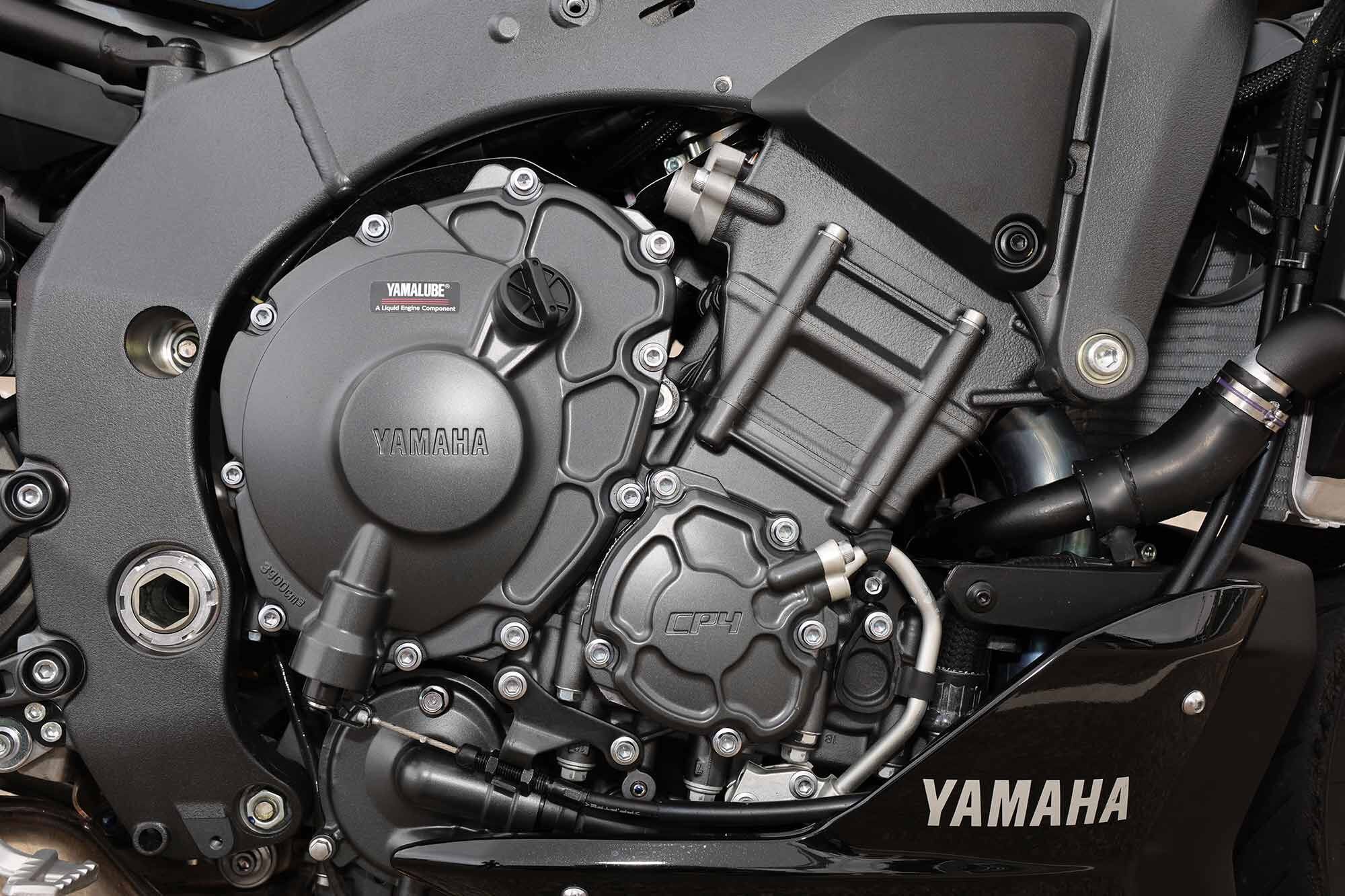
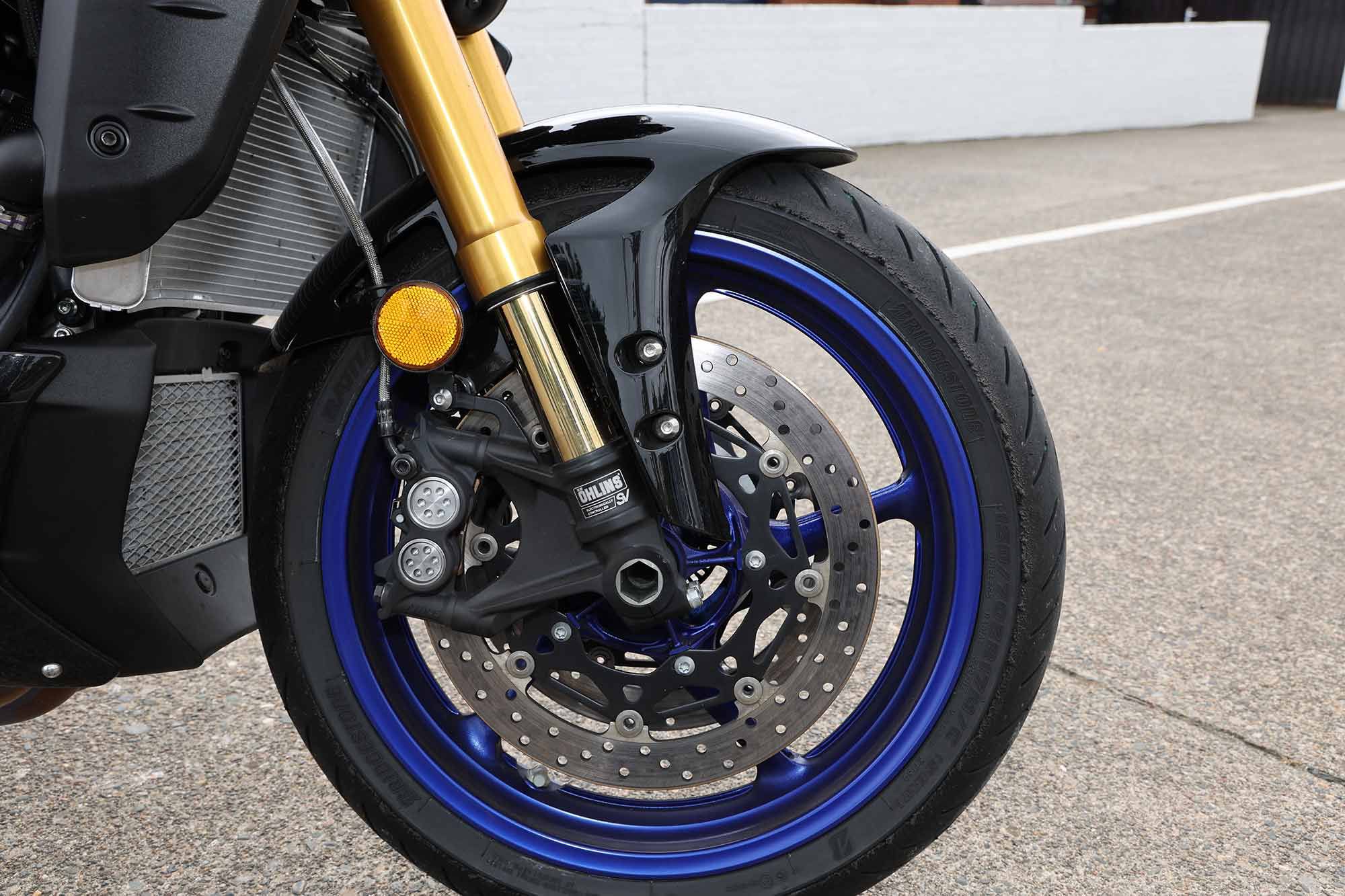
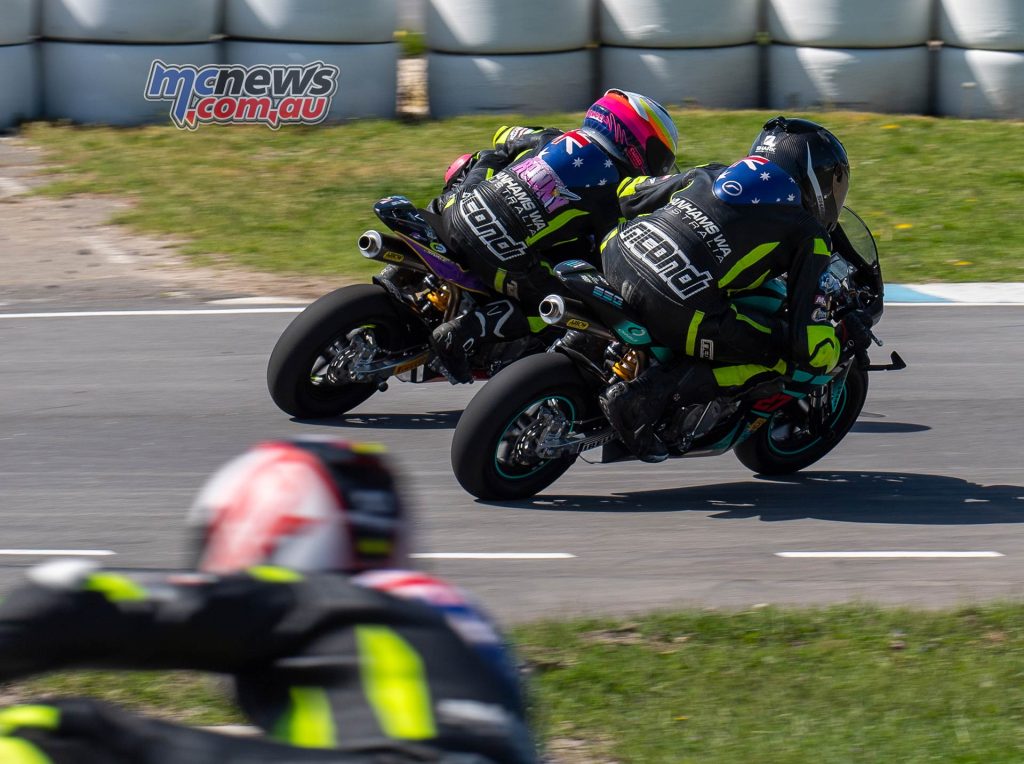
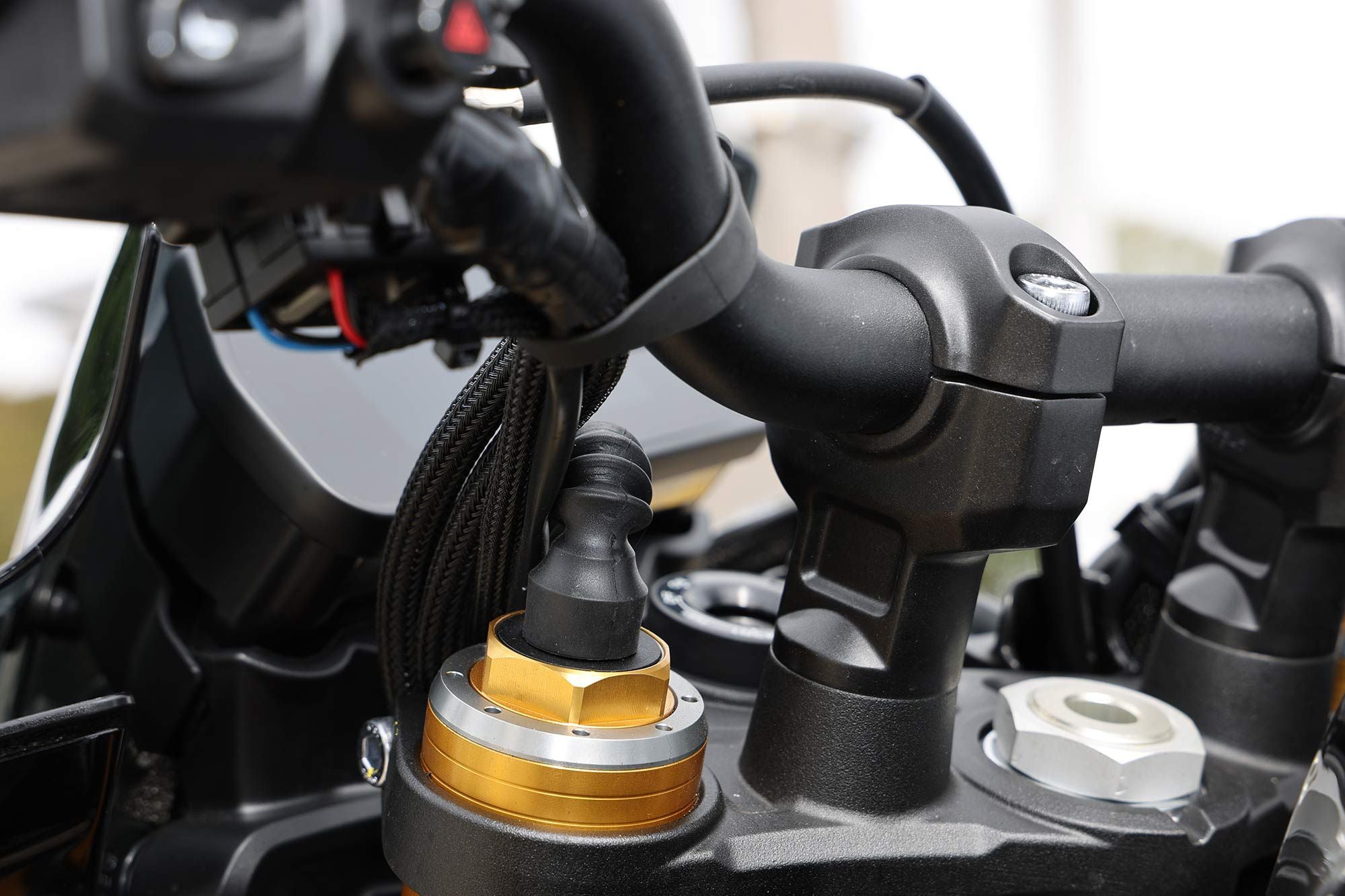
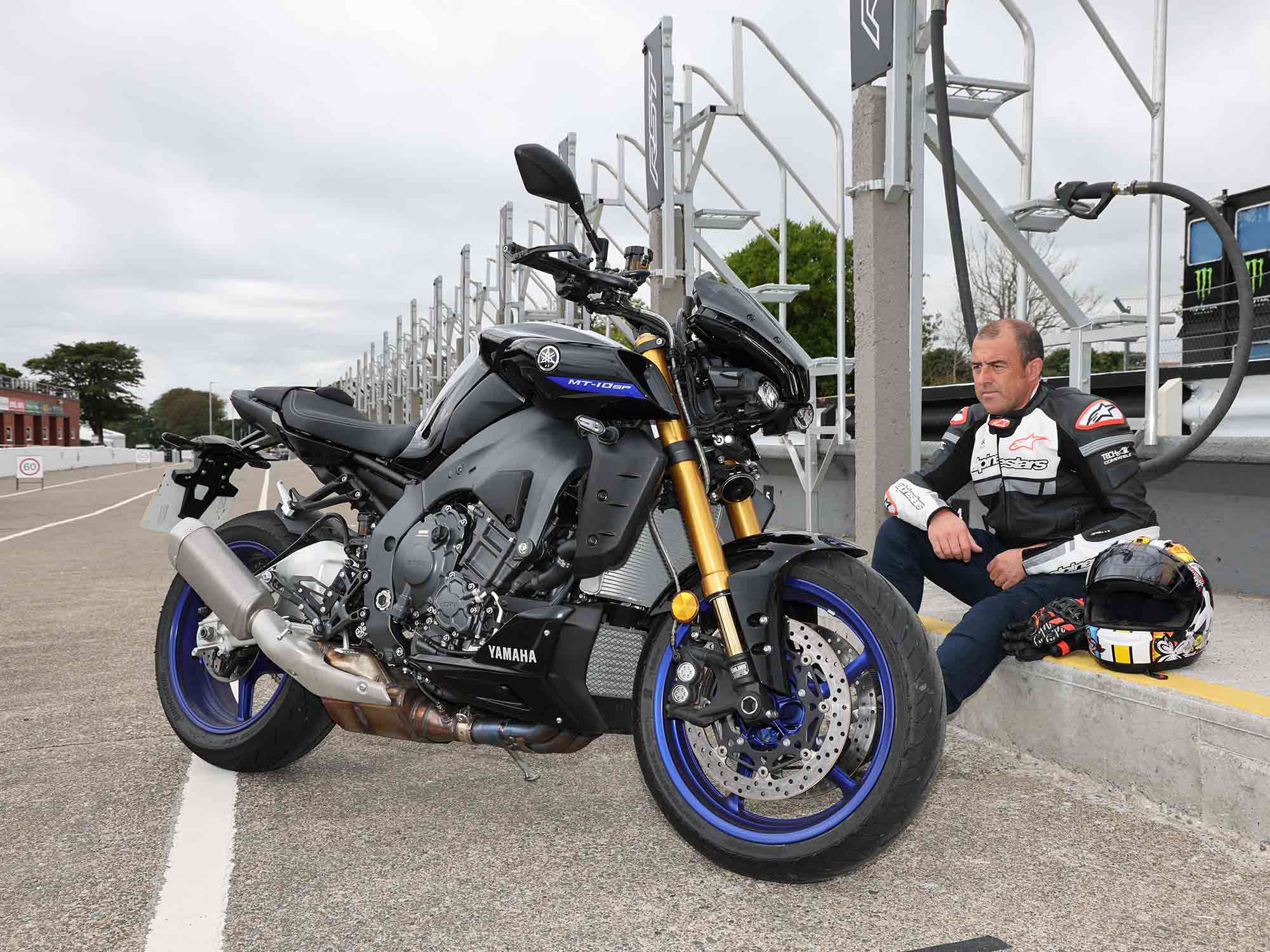
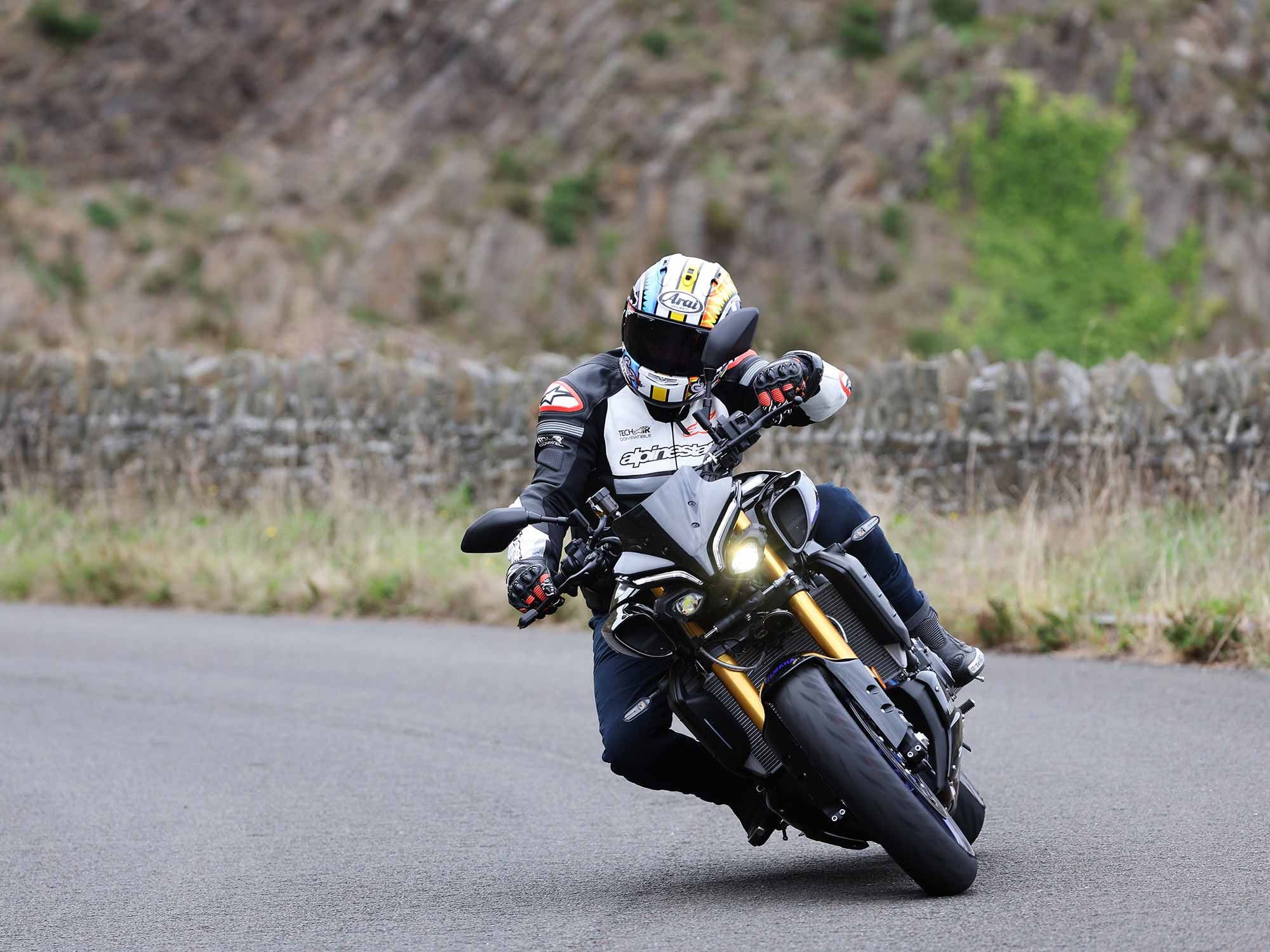
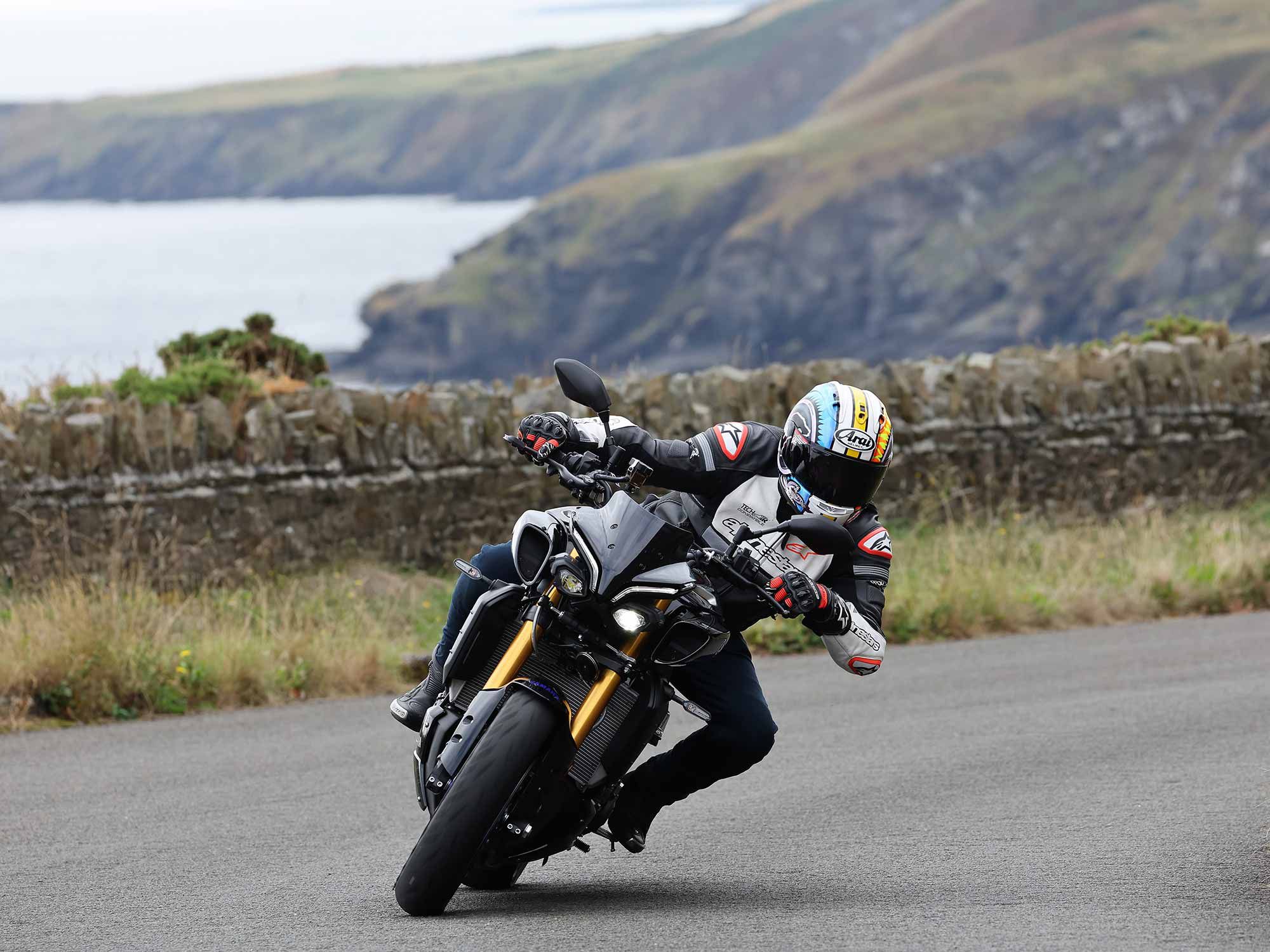
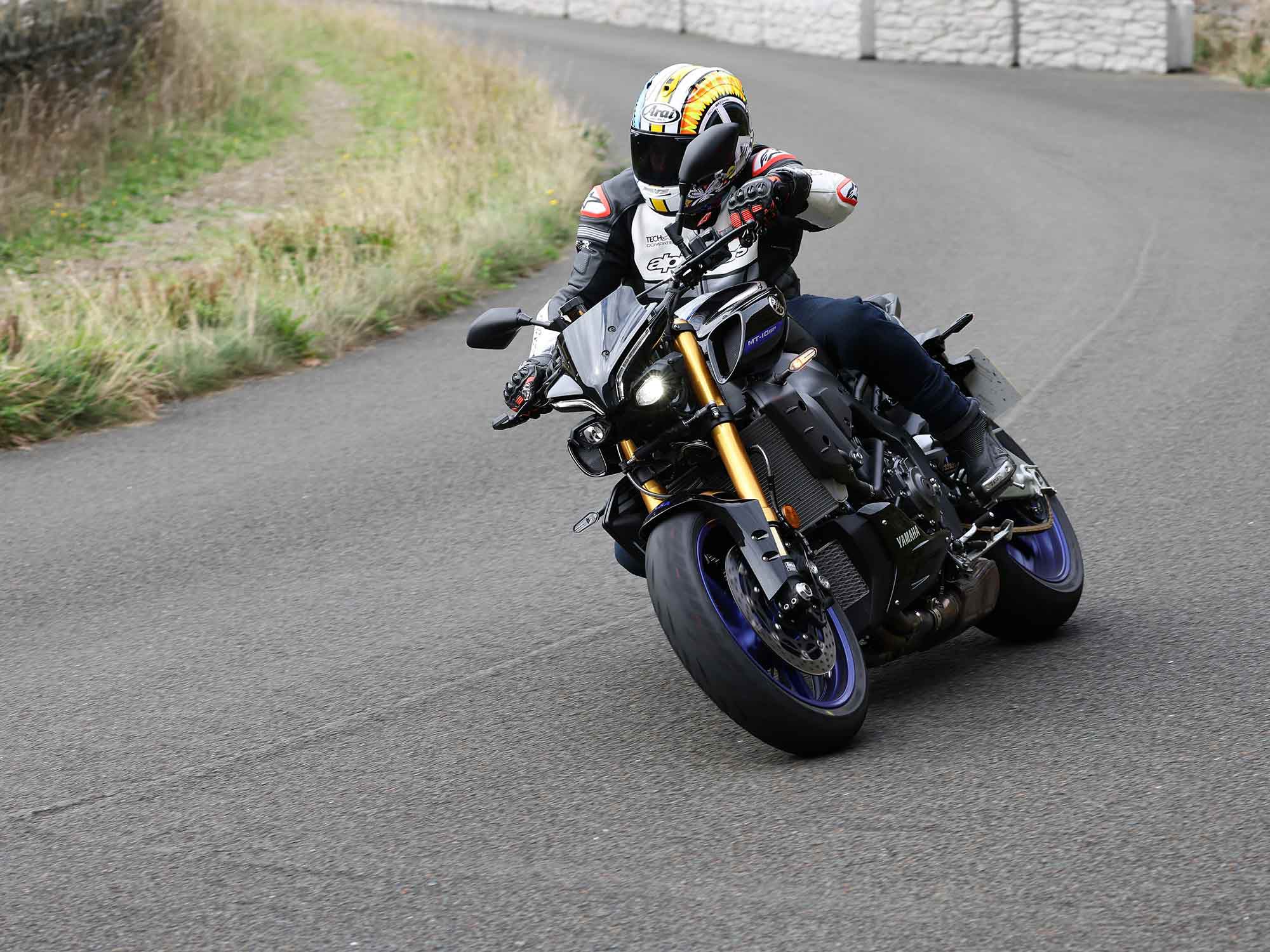
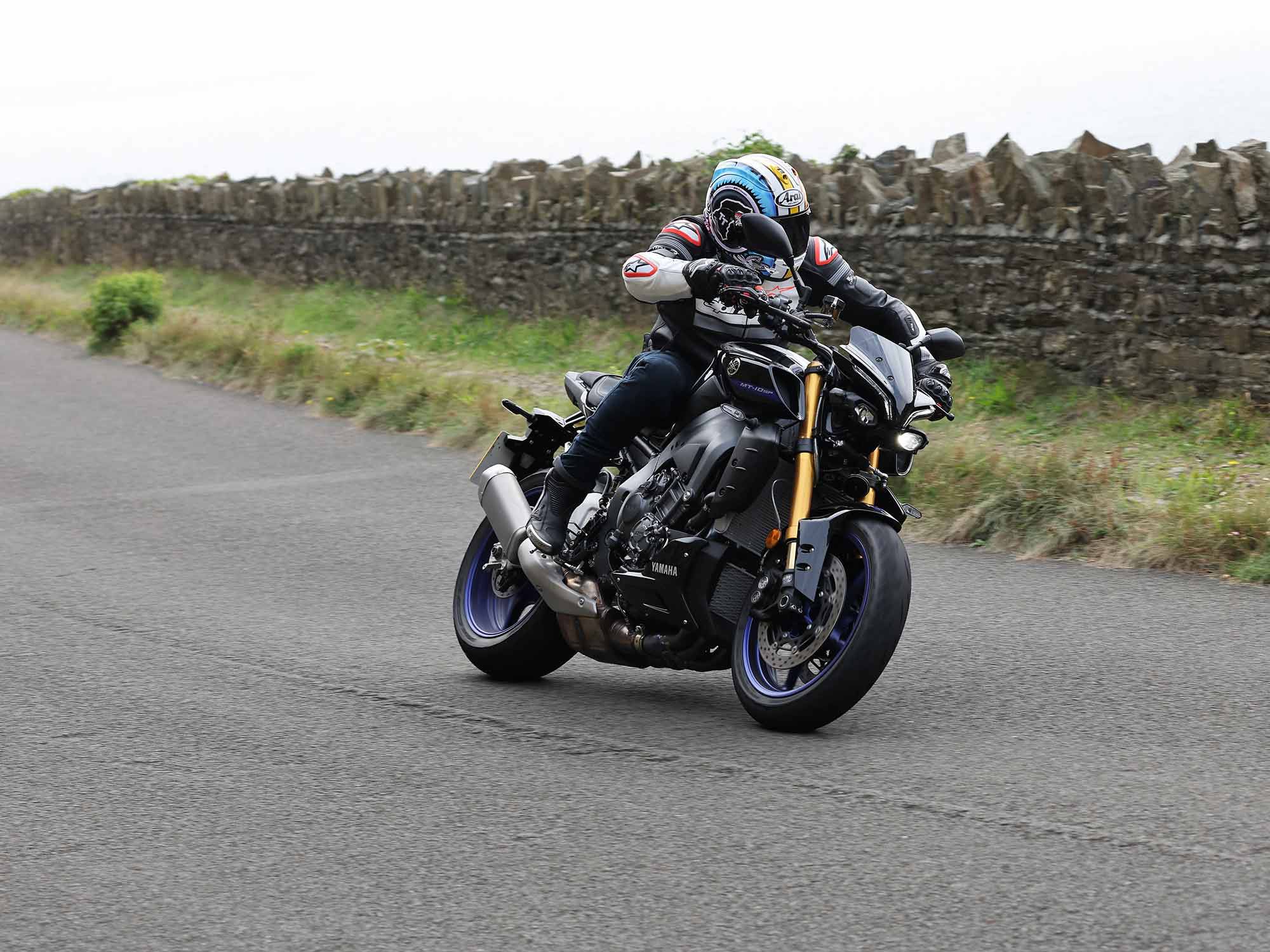
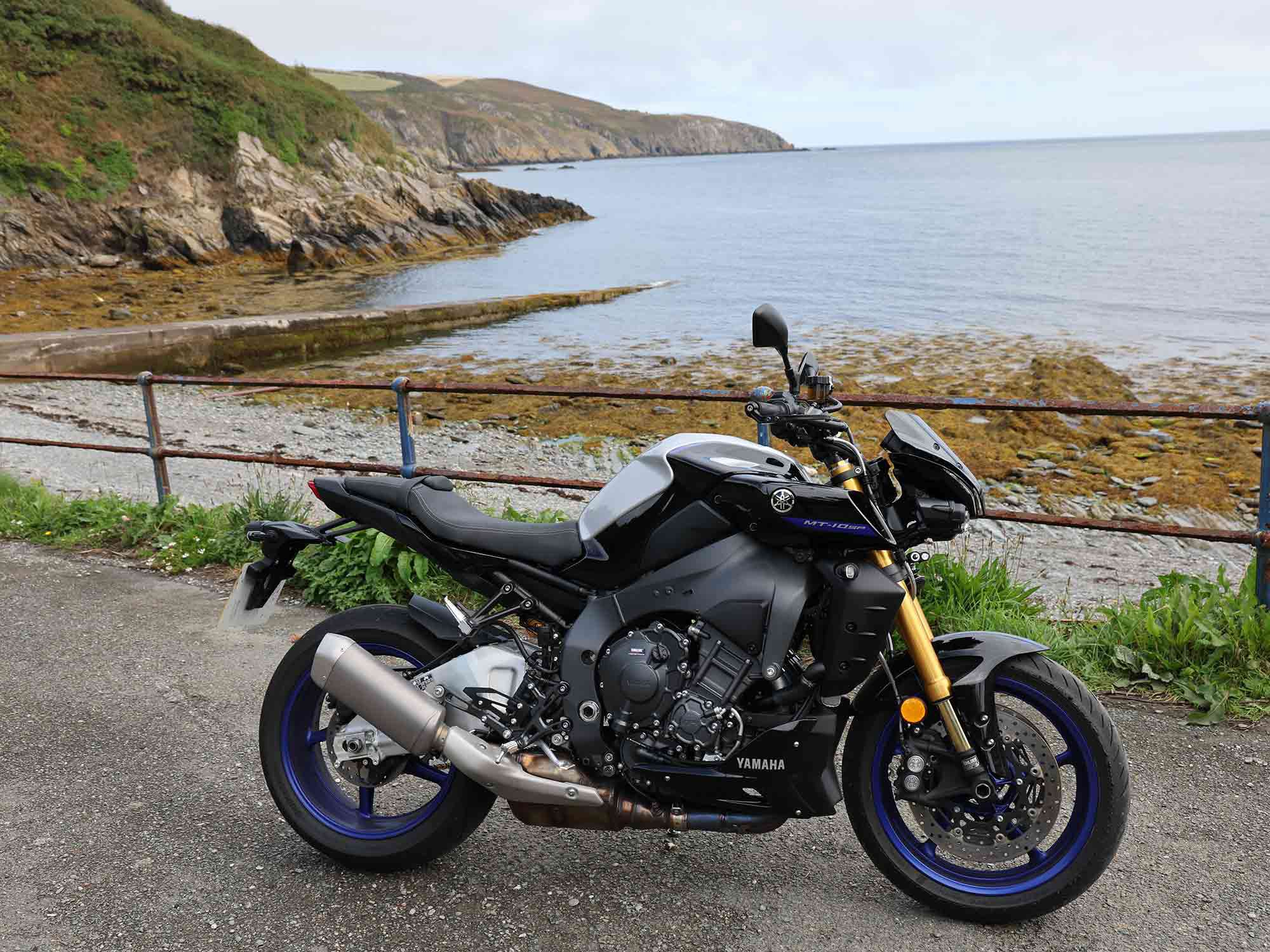
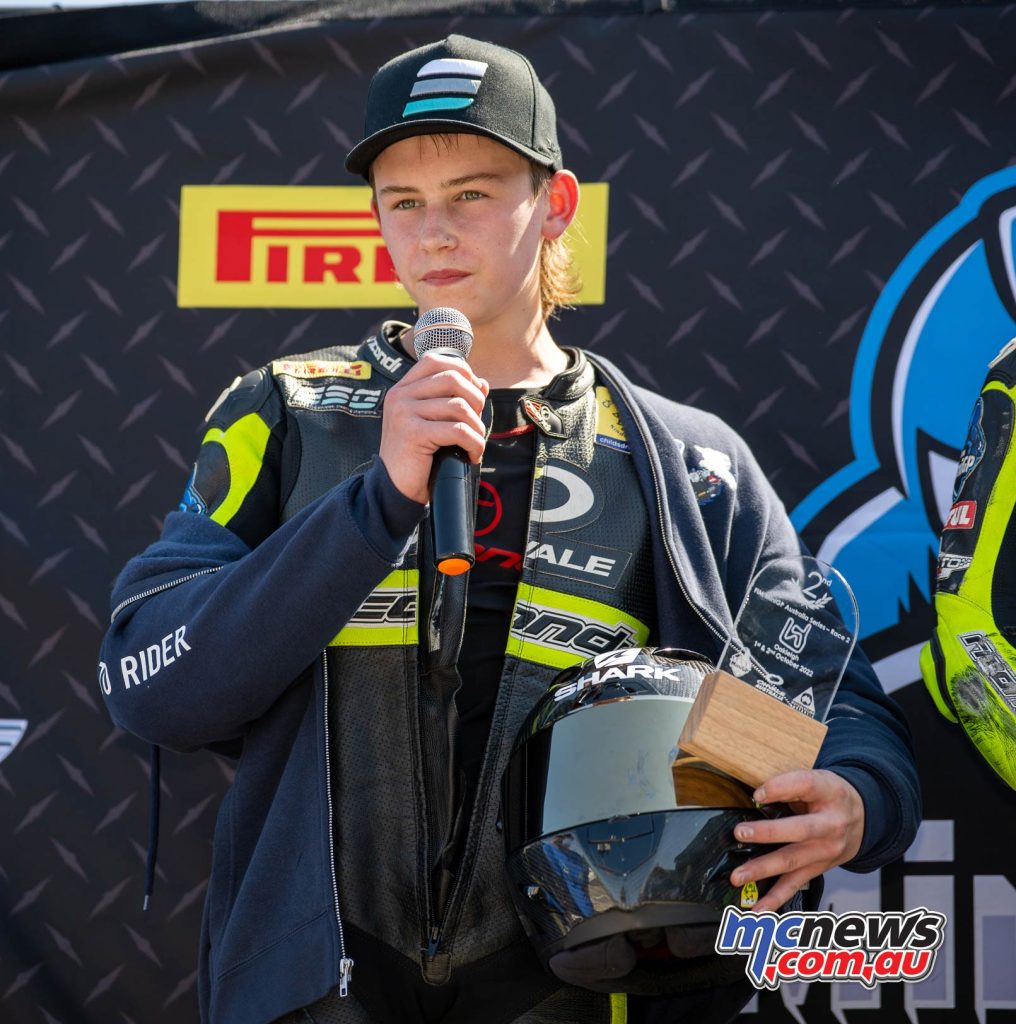
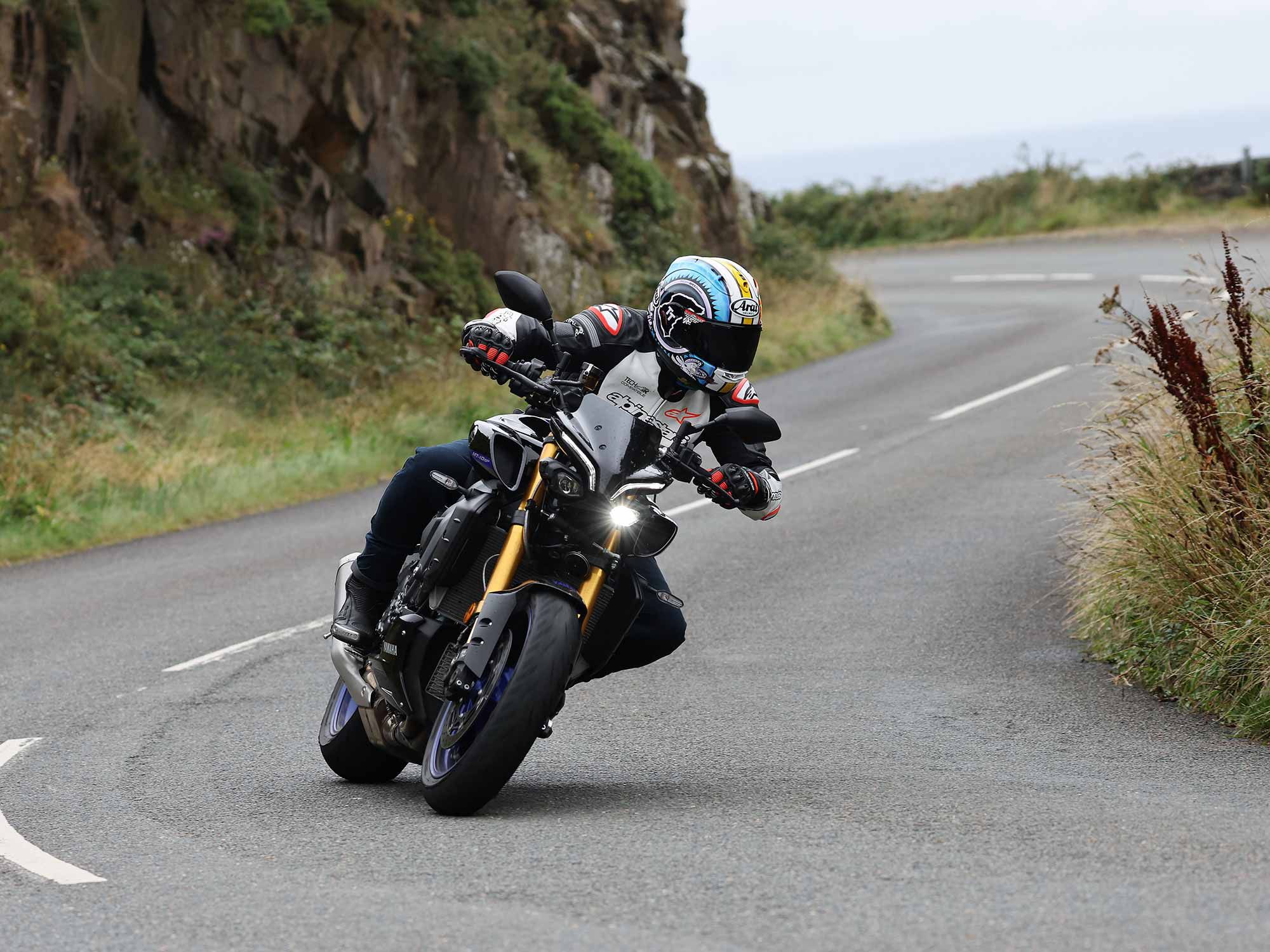
Source: MotorCyclistOnline.com
